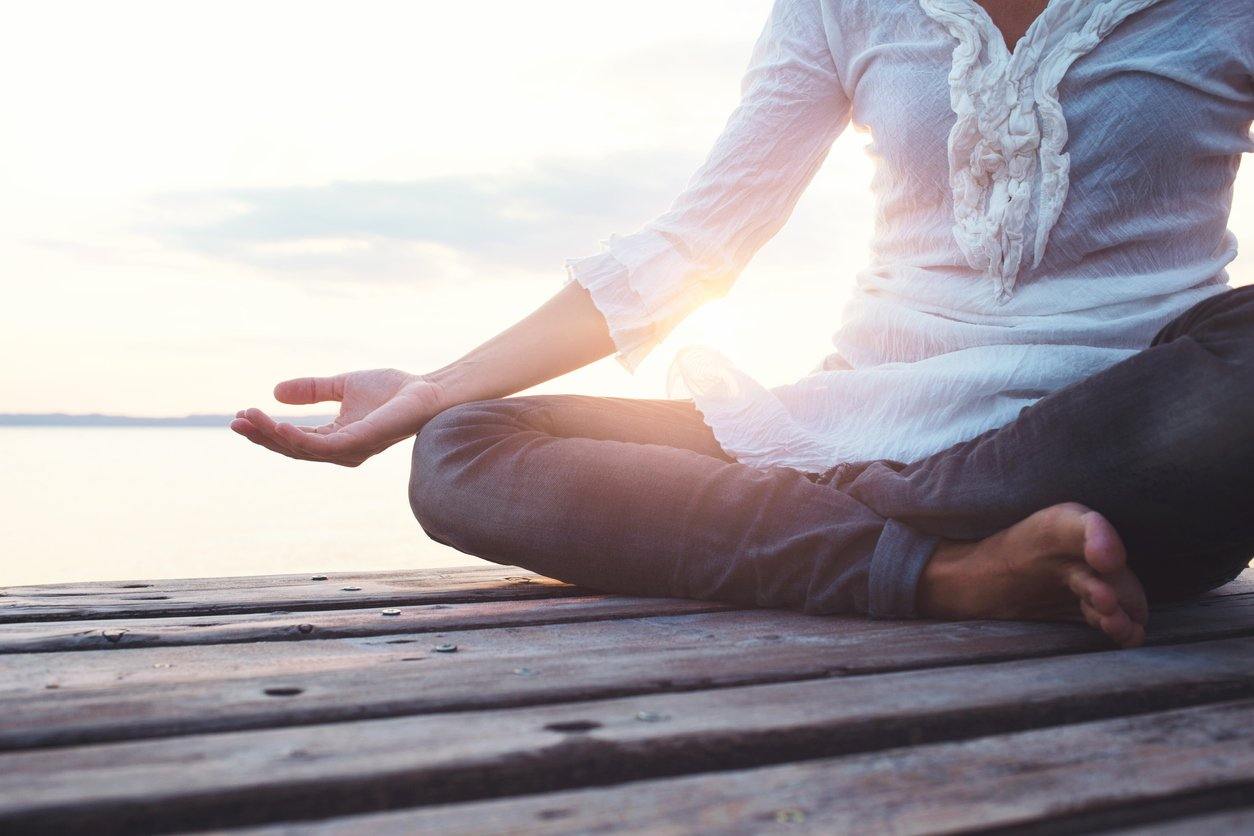
Yoga for Stress, Mood & Trauma
We all know that stress can cause some very real physical and psychological impacts on our health. Neuroscientists have even found that early exposure to stressful, adverse events can make us even more vulnerable to mood disorders such as anxiety and depression later in life. Taking steps to actively reduce stress can not only help reduce harmful long-term effects on the body, but is also key to finding happiness, satisfaction and joy in life. Well, as if we all needed any more excuses to head to our local yoga studio (or in current circumstances for some areas, your online studio) for our fix!
Taking steps to actively reduce stress can not only help reduce harmful long-term effects on the body, but is also key to finding happiness, satisfaction and joy in life.
A recent American population-based study published in the Journal of Alternative and Complementary Medicine has found that many young adults are now turning to Yoga to assist with dealing with the stress of adverse experiences6. The survey study of 1568 people aged between 18 and 30 years and across a range of cultures, showed that youth who had endured experiences such as childhood abuse, victimisation, discrimination and financial stress, were more likely to practice yoga than young adults who had not experienced these events6. Interestingly, there were large differences in prevalence across genders, with young men being less than half as likely to practice yoga than women, while a huge 36.4% of those with an alternative gender identity practiced yoga6; this may indicate the high level of emotional trauma this group of people experience throughout their young lives.

Yoga is a beautifully healing mind-body-spirit practice. In contemporary times, the practice generally involves physical postures and breath work, as well as meditation and mindfulness. By linking mindful breathing with movement, regular yoga practice has been shown to calm the mind, increase resilience and ability to deal with challenging experiences, and help effectively manage stress.
But, how exactly does yoga reduce stress? To start, studies have shown that yoga exerts its effects on the mind by positively affecting self-awareness7. Neumark-Sztainer et. al (2020) theorise that yoga increases one’s awareness to internal signs of stress through the practice of inward reflection and listening. Francis and Beemer (2019) concur, suggesting that yoga may reduce stress by affecting the way individuals evaluate stress; the combination of the positions (or asanas) in yoga along with breath work and mindfulness emphasise inward reflection. Further, lower levels of self-objectification is linked to the heightened awareness of the physical body and how it feels during a yoga practice; this ‘influences the unconscious connection between the body and our emotions’2, strengthening our mind-body connection.
'yoga practice increases in quality of life while decreasing perceived stress, both of which are facilitated by mindfulness and self-compassion; this ‘subjective level of wellbeing has been shown to be positively correlated with good health, long life, fulfilling relationships, high income, and work performance'
These psychological elements have demonstrated more positive attitudes towards stress, improving coping mechanisms, emotional control, mindfulness, calmness, spiritual connection and compassion, while improving cognitive and social functioning3,7. Research reviewed by Riley and Park (2015) also suggests that there is a powerful association between mindfulness and stress reduction7. High levels of mindfulness, as a ‘state of being attentive to and aware of what is taking place in the present’, has been linked directly to yoga practice7, p380, thereby improving resilience to stress. Indeed, the results of one study in 2012 confirmed that yoga practice increases in quality of life while decreasing perceived stress, both of which are facilitated by mindfulness and self-compassion; this ‘subjective level of wellbeing has been shown to be positively correlated with good health, long life, fulfilling relationships, high income, and work performance’3, p. 165.

So, our mind and spirit are on track, but what is happening physically to elicit these positive biological responses? According to Riley and Park’s (2015) extensive research, it is believed that yoga increases parasympathetic nervous system responses via the vagus nerve. The vagus nerve is the main component of the parasympathetic nervous system which helps control mood, immune responses, heart rate and digestion, by sending information from the gut and organs to the brain1. Treatments that target the vagus nerve increase the vagal tone and inhibit inflammation, both of which are crucial to maintaining resilience1.
The stimulation of vagal afferent fibres in the gut influences systems in the brain that play central roles in major psychiatric and digestive conditions, such as anxiety, depression, post-traumatic stress disorder and inflammatory bowel disease (IBS)
The stimulation of vagal afferent fibres in the gut influences systems in the brain that play central roles in major psychiatric and digestive conditions, such as anxiety, depression, post-traumatic stress disorder and inflammatory bowel disease (IBS)1. This vagal stimulation in the gut also affects our gut microbiome, or beneficial gut bacteria1. Contemporary research has found that our gut bacteria has a direct effect on mood and anxiety states, so vagal tone directly correlates with our capacity to regulate stress responses1,4. Regular yoga practice may therefore complement natural therapies targeting the digestive system, helping to support and heal conditions such as ulcerative colitis and Crohn’s Disease.

Figure 1: Breit et. al. 2018. ‘Vagus Nerve as Modulator of the Brain–Gut Axis in Psychiatric and Inflammatory Disorders’
Further, yoga relaxes the hypothalamic–pituitary–adrenal (HPA) axis and sympathetic nervous system7. Importantly, this action helps prevent or decrease the release of stress hormones cortisol and catecholamines, lowers blood pressure, decreases heart rate and reduces inflammation7, especially in the gut.
Stressful experiences (both past and current), are not only mentally destructive, but provoke behaviours such as use of drugs and alcohol to soothe distress – which is not at all uncommon. One study found that a group of traumatised individuals had demonstrated high rates of lifetime dependence on various substances (39% alcohol, 34.1% cocaine, 6.2% heroin/opiates, and 44.8% marijuana5), and although these individuals showed high levels of resilience5 these substances can cause direct physiological damage to organs and systems involved in the stress response.
Although yoga is not offered as a substitute for psychological care, the regular practice of gentle, flowing yoga is a significant consideration for anyone who has endured past trauma or is experiencing stressful states.

It is critical to ensure that when we are exposed to trauma or stressful experiences, we can access strategies for modulating stress levels. For those living with stress (and let’s face it… that will be most of us!) you might consider yoga practice as an adjunct therapy to other beneficial natural and psychological and/or medical interventions. Remember – you don’t need to be flexible or fit to participate in yoga, it is a practice that accommodates for all. Although yoga is not offered as a substitute for psychological care, the regular practice of gentle, flowing yoga is a significant consideration for anyone who has endured past trauma or is experiencing stressful states.
There are also many beautiful adaptogenic, restorative Ayurvedic herbs and lifestyle changes that complement yoga therapy, creating a safe and effective holistic system of natural medicine. When considering natural supplements for any condition, getting the right advice from a qualified natural health practitioner is vital. We encourage you to reach out for support and guidance – we would love to help you on your way. Our special interest is in trauma and stress, offering a safe, caring environment for those from all walks of life. A consultation may be necessary to best establish which supplements or remedies are the safest and most suited to your unique needs, especially if you are taking medications or are under medical care.
*This article does not replace medical advice and is not intended to diagnose or treat any conditions. References available on request.


